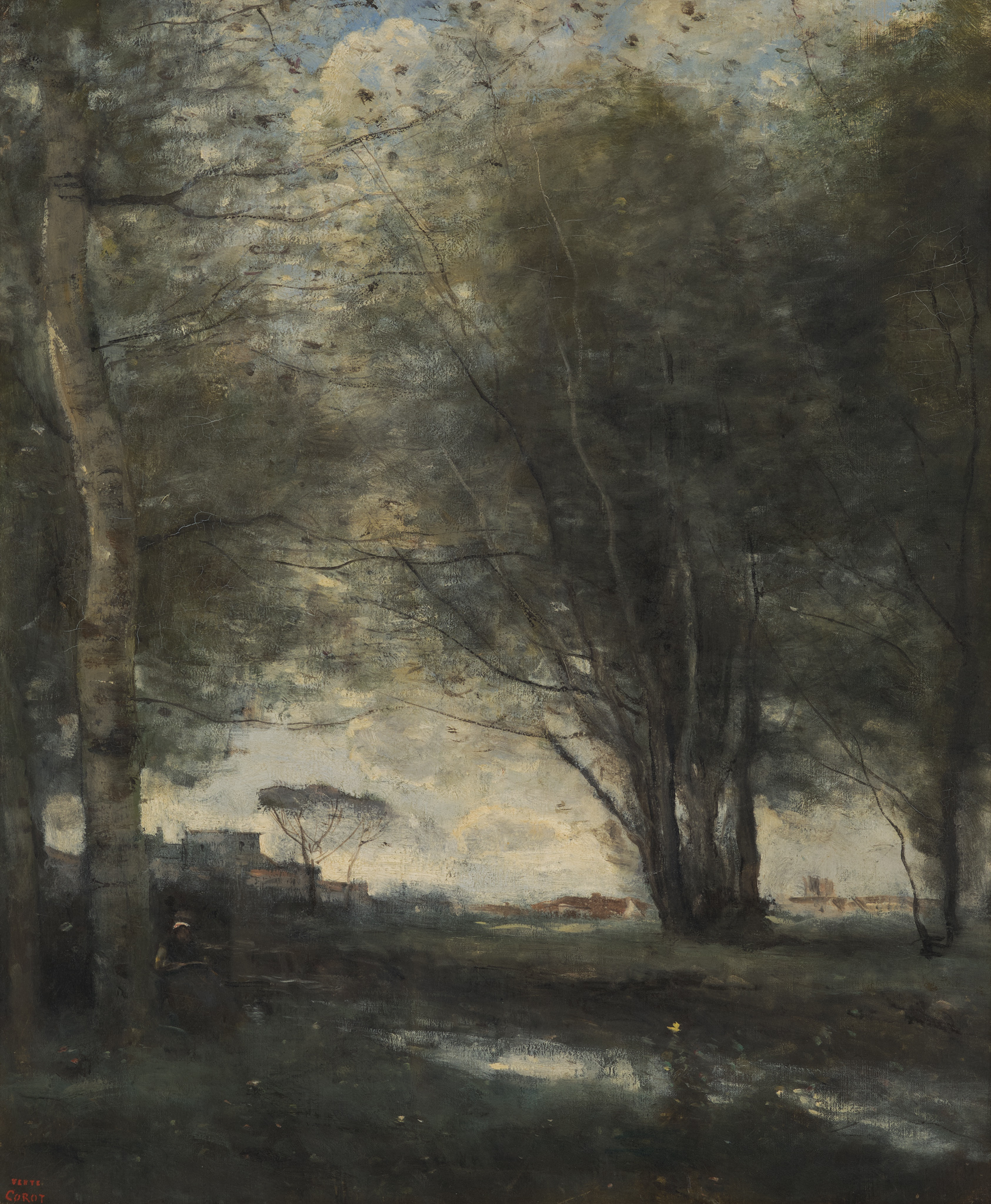JEAN-BAPTISTE-CAMILLE COROT (FRENCH 1796-1875)
LE COURS D'EAU SOUS LES ARBRES
£87,700
Auction: Lots 336 - 597 | 05 September at 10am
Description
Signed with the Vente Corot stamp, with Vente Corot seal to central stretcher verso, oil on canvas
Dimensions
61cm x 50cm (24in x 19.75in)
Provenance
Provenance:
Corot Studio sale, Paris, 1875, no.223 to M. Detrimont;
Acquired by Edward and Isabella Balfour, Balbirnie, Scotland in Paris in the 1880s;
Isabella Balfour until 1938, and thence by family descent.
Footnote
Literature: Alfred Robaut, L'oeuvre de Corot, ed. Floury, Paris, 1905, Vol. 3, pp. 368-369, no.2372
Note: This painting has been inspected first hand by Claire Lebeau-Dieterle and a letter of authentication accompanies this lot. Claire Lebeau-Dieterle dates this painting c.1870-1874.
Le Cours d’Eau Sous Les Arbres is redolent of the ethereal stylisation of Camille Corot’s mature work. Amidst a birch grove we find a farm hand, perhaps resting while journeying out from the town delineated in terracotta along the horizon. Corot suffused his landscapes with silvery Elysian ambience by painting on a ground of pale grey. He then applied colours from dark to light, first tracing the shadowy trees which so often frame his compositions and coming last to the sky which, brushed in diffused strokes, appears to glint through the tree canopies. Around Le Cours d’Eau Corot has suggested yellow wildflowers using flicks of marigold pigment, almost audacious in their brevity. To the lower left the work bears the ‘Vente Corot’ stamp confirming its provenance from the artist’s studio.
By the 1850s Corot had devised an original landscape genre comprising imagined woodland and riverside idylls populated by peasants, nymphs and bacchantes. These Arcadian visions, which Corot dubbed his Souvenirs, were often based on oil studies made en plein air. Their technical spontaneity and atmospheric verisimilitude constituted a novel approach to landscape painting which anticipated and influenced the work of the Impressionists. The Souvenirs’ fantastical nature ostensibly ran counter to the Impressionists’ objective to portray modern life, but Corot’s pastoral visions were a response to the encroaching industrialisation and modernisation of France, and for this reason their poignancy continues to resonate with audiences to this day.

